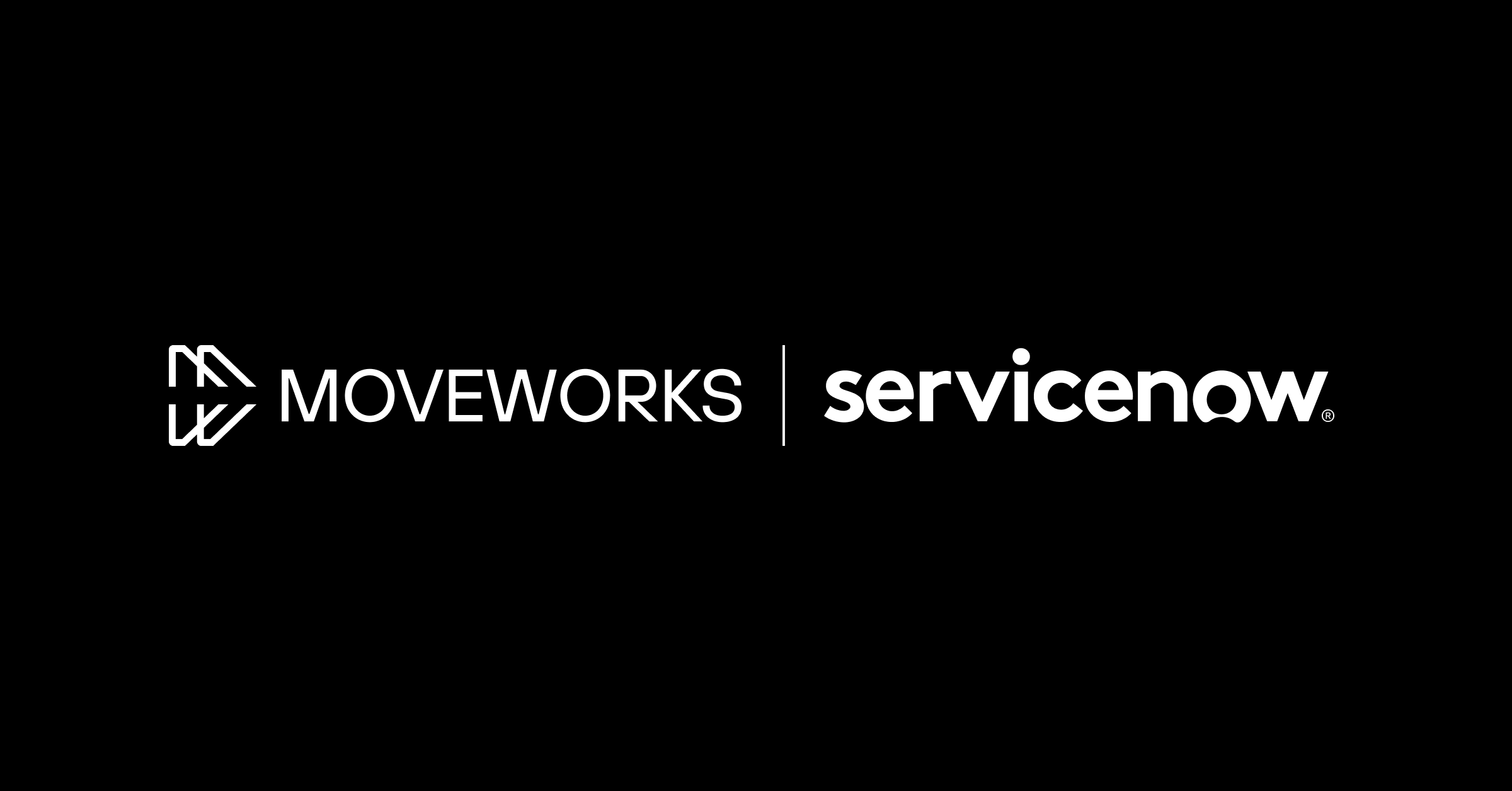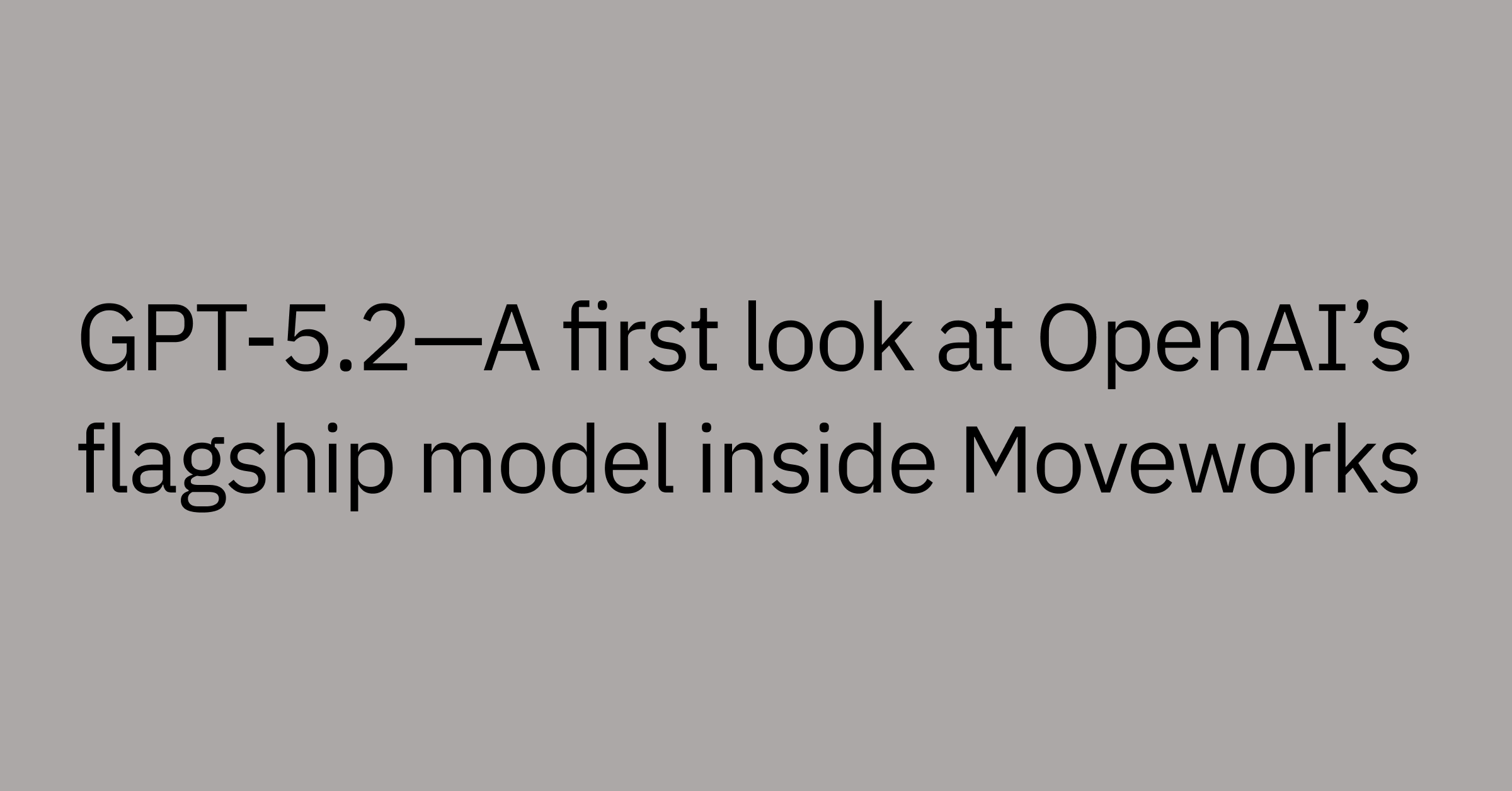Table of contents
The core conundrum of AI
Does AI improve the operational efficiency of a business directly, or does it rely on employees doing their jobs differently to become more productive? This is the contrast posed by Marc Benioff when he challenged Microsoft's strategy on Copilot. Marc's claim is that AI agents will drive business productivity and not just employee productivity. While Marc is right, there is a bigger picture that every enterprise leader needs to map.
In this article, I attempt to clarify a few things:
- What constitutes employee productivity vs. business productivity
- What can AI do?
- How should we categorize AI agents?
- Which AI agents are most useful for a business vs. an employee?
- Where does RAG fit in an agent world?
Jobs to be done for employees
When considering how AI can impact organizations, it makes sense to start by understanding the jobs that employees need to get done every day. Employees often face tasks that require significant time and mental effort — tasks where AI can provide meaningful support. The "jobs to be done" framework helps us think backwards from the needs of employees to see where AI agents can fit in.
One major area where AI can help is in generating insight from information. Employees routinely need to read long documents, analyze data, and make sense of it all to drive their work forward. AI can assist by summarizing, extracting key details, or providing analyses, turning a complex task into something manageable and faster.
Another common challenge is finding information scattered across different enterprise applications and data systems. Employees need the right data at the right time, whether it’s hidden in emails, buried in file storage systems, or distributed across multiple apps. AI agents can help by connecting these disparate systems and surfacing the most relevant information quickly.
Finally, employees often need to act on tasks, ranging from routine administrative duties to more complex procedural actions. This could include booking meetings, submitting deal requests, filing PTO, or gaining access to tools and applications. AI agents can take over these repetitive tasks, enabling employees to focus on the aspects of their work that demand creativity and human judgment.
Jobs to be done for a business
Beyond individual employees, businesses themselves have jobs to be done — these are often the core operations required to keep an organization functioning. The importance of these jobs is evident from the fact that businesses allocate dedicated staff or teams to handle them. Departments such as IT, HR, finance, and sales operations exist specifically to support employees and ensure the seamless operation of the company. Teams like Security TPMs and RFP response groups are tasked with critical operational work that the business values highly.
AI agents have the potential to help fulfill these business-wide jobs. Whether it’s assisting IT support, automating HR responses, managing sales requests, or ensuring security compliance, AI can play a role in reducing the manual burden on teams and allowing businesses to operate more efficiently.
Jobs that AI can do
AI has emerged as a powerful force in taking on tasks traditionally handled by employees and business teams. Often, these tasks are managed by AI agents — which can be understood as large language models (LLMs) equipped to reason, plan, and call APIs to gather information or take action. An AI agent might call APIs in parallel, in a sequence, or even recursively to accomplish more complex objectives.
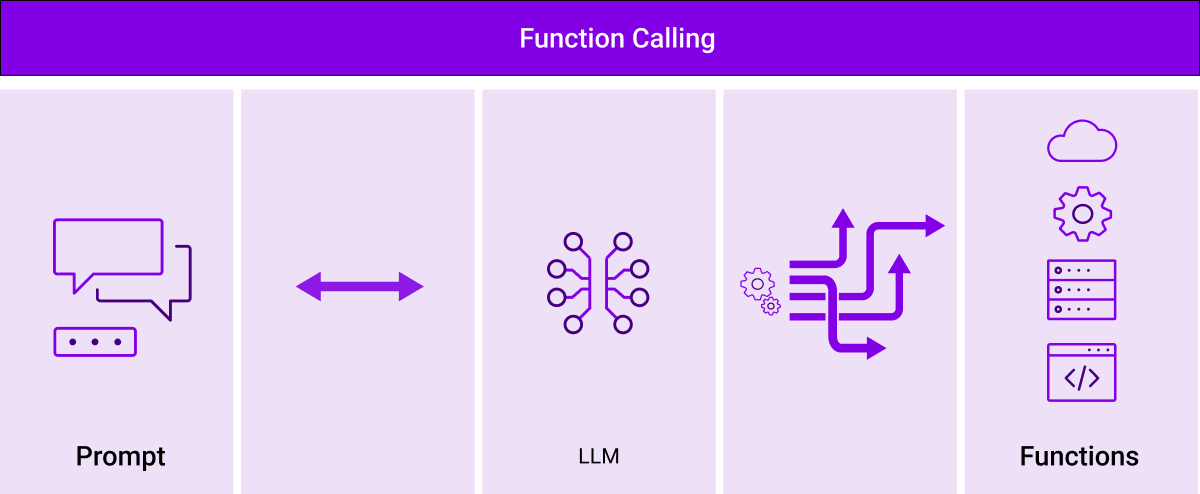
By leveraging AI agents, businesses can enable their employees to work more effectively and eliminate some of the more repetitive and resource-heavy jobs. In some cases, AI agents not only enhance employee productivity but also replace certain support functions that businesses typically staff up for. This opens the door to new ways of working and can change how organizations allocate their resources.
Types of AI agents
AI agents can be divided into two key categories: those that boost employee productivity and those that transform business operations.
Employee-focused AI agents assist with everyday tasks — like summarizing documents, finding information across systems, and automating routine actions — allowing people to focus on more strategic work.
On the other hand, business-focused AI agents tackle large-scale operational tasks, such as IT support or HR services, streamlining processes that businesses typically staff teams for. By automating these functions, AI agents don’t just make work easier — they structurally change how organizations operate.
Value of AI agents
AI agents provide value by improving both employee productivity and business productivity, though the impact can differ depending on the type of job being done. To understand this value, we can introduce a framework that distinguishes between employee productivity and business productivity.
Some jobs predominantly improve employee productivity, with an indirect impact on business productivity. These include tasks like generating insights, finding information, and automating routine actions. By making employees more effective in their daily roles, AI agents help streamline workflows, reduce time spent on manual tasks, and enable employees to focus on higher-value work.
Other jobs primarily enhance business productivity, with indirect benefits for employee productivity. These are often jobs that businesses value highly enough to dedicate entire teams to, such as IT support, HR services, finance operations, and security management. AI agents can take on many of these tasks, allowing businesses to operate more efficiently and allocate resources more effectively.
By understanding how AI agents contribute to both employee and business productivity, organizations can better determine where to deploy these technologies for maximum impact. In many cases, AI agents not only help employees achieve more but also reduce the need for extensive business support functions, leading to a more agile and efficient organization.
The AI agent value map
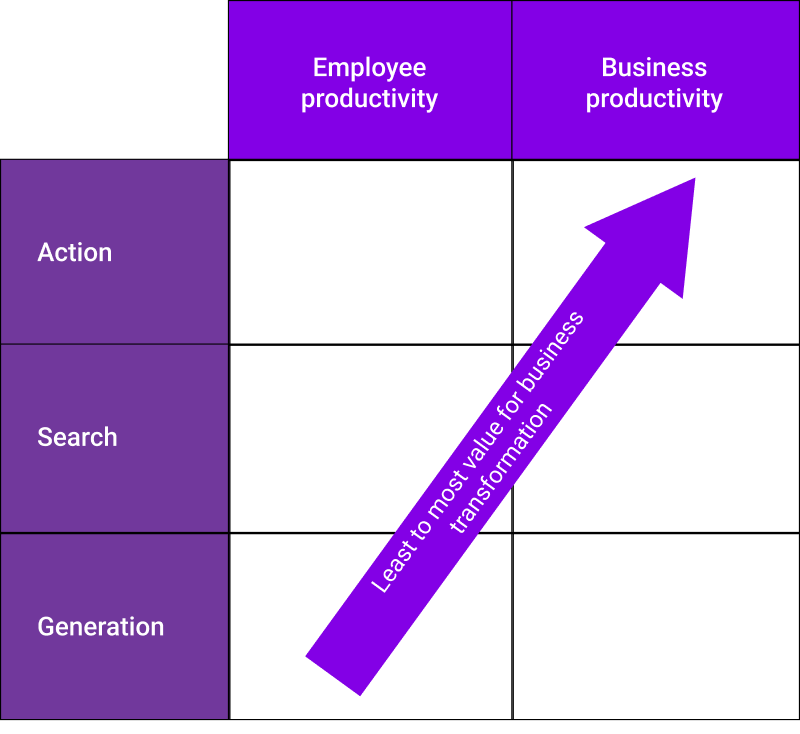
The most valuable part of the map is the top right. When AI Agents can take actions, and take care of functions that a business staffs for, you derive a complete transformation of business and return operating leverage to the business.
On the bottom left, when an employee is quickly reading a document that they have access to, it improves their productivity but does little to directly transform the business.
If you took all of your AI “jobs to be done” aka use cases, and filled them on this map - you can quickly assess whether the AI Agent will help you transform your business, or primarily improve employee productivity.
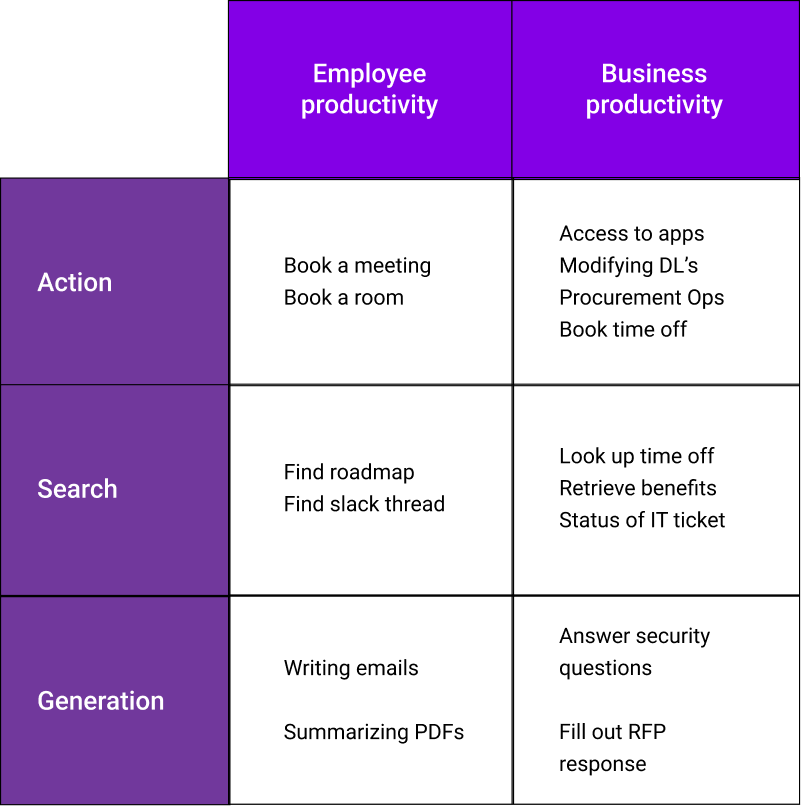
RAG vs AI agents
RAG is short for retrieval-augmented generation. In RAG, a search query hits the search API, often retrieving data from an index that stores data ingested from many systems. However, RAG itself isn't an agentic system. When an LLM-based reasoning engine intermediates between a user and a search API, it becomes an AI Agent for search or Agentic RAG. In an AI Agent world, RAG is simply one of the endpoints that an LLM-based autonomous reasoning engine can call.
Summary
This document explores whether AI improves business efficiency directly or requires employees to change their work habits. Marc Benioff argues that AI agents can drive business productivity, not just employee productivity.
Employee productivity vs. business productivity
AI agents can enhance employee productivity by simplifying tasks like generating insights, finding information, and automating repetitive actions. They also streamline core business operations, such as IT and finance, improving overall efficiency.
What can AI do?
AI agents, powered by large language models, assist employees and businesses by reasoning, planning, and calling APIs to take actions and gather information, reducing manual workloads.
Categorizing AI agents
AI agents can be categorized by their focus on either employee-specific tasks or broader business functions, enhancing productivity at both levels.
AI agents for business vs. employees
Business-focused AI agents automate support operations, while employee-focused agents improve individual productivity and free up time for higher-value work.
See how you can bring AI agents to life. Register for our webinar.


